Inclusion
Inclusion means that people with disabilities (special educational needs or specific learning difficulties) are entitled to the same access to the primary curriculum as people without them. In this section, you will find resources useful for improving inclusion across the primary history curriculum.
Sort by:
Date (Newest first) | Title A-Z
Show:
All |
Articles |
Podcasts |
Multipage Articles
-

History and SEND: free taster films
ArticleClick to view -

Film series: History and SEND
Multipage ArticleClick to view -
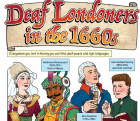
Pull-out posters: Primary History 95
ArticleClick to view -
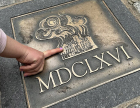
Exploring the Great Fire of London and Deaf history
ArticleClick to view -

Teaching black British history through local archives
ArticleClick to view -

Education White Paper and SEND Review 2022
31st March 2022Click to view -

Recorded webinar: Exploring representations and attitudes to disability across history
ArticleClick to view -

Exploring empire, artefacts and local history
ArticleClick to view -
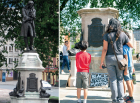
Re-evaluating the role of statues
ArticleClick to view -

Migration to Britain through time
ArticleClick to view -
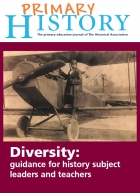
Primary History Summer Resource 2019: Diversity
ArticleClick to view -

Three first-class ladies – teaching significant individuals in Key Stage 1
ArticleClick to view -

Ideas for assemblies: LGBT History Month
ArticleClick to view -

World War I: widening relevance in the modern world
ArticleClick to view -

Muslim soldiers in World War I
ArticleClick to view -

Studying the Maya
ArticleClick to view -
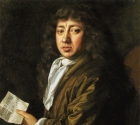
KS1: Teaching about significant individuals
ArticleClick to view -

Assessment and Progression without levels
ArticleClick to view -

Teaching Ancient Egypt
ArticleClick to view -

Ideas for assemblies: significant women in history
ArticleClick to view

